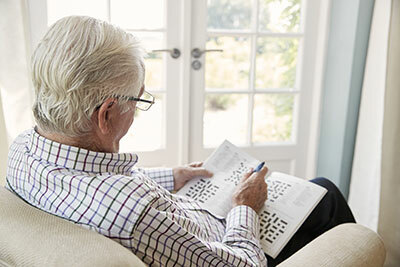Crosswords and Mental Decline


Crosswords and Mental Decline
Maintaining memory and other cognitive skills is a fundamental challenge for aging brains. Many seniors address this challenge by seeking intellectual stimulation – adhering to a “use it or lose it” philosophy that has them tearing through books of Sudoku puzzles or laboring over crosswords from the Sunday New York Times. Yet, a recent study by a team of Scottish researchers suggests that these types of brain training exercises may not fend off age-related mental decline.
Published in leading research journal The BMJ, the study (entitled, “Intellectual Engagement and Cognitive Ability in Later Life: Longitudinal, Prospective Study”) looked at 498 volunteers, all born in 1936 and living independently in northeast Scotland. Tracking them from the age of 11, when they each took an intelligence test, scientists measured their information processing speed and verbal memory over a 15-year period after they had reached late middle age.
Results showed that mental stimulation does not directly prevent cognitive decline. However, there was a bright spot: The study did seem to indicate that investment in intellectual activities throughout the course of one’s life, starting with the younger years, can enhance cognition overall.

“These findings are interesting, but I don’t believe they argue against seniors participating in activities that make them think,” says Noah Marco, M.D., Executive Director of the Brandman Research Institute and Chief Medical Officer of the Los Angeles Jewish Home. “The satisfaction that comes with accomplishment can trigger feelings of well-being, and research shows that seniors’ emotional health is linked to longevity.”
The Scottish study was led by Roger Staff, an honorary lecturer at the University of Aberdeen and head of physics at Aberdeen Royal Infirmary. He and his team acknowledge that individual personality may play a part in how much effort seniors put into puzzles, and that the combination of personality and effort could influence cognitive ability, ultimately, changing the study’s results.
For his part, Dr. Marco plans to continue giving residents of the Home the same advice he has always offered. “Seniors should do things they love, and they should pursue those activities with determination, passion, and joy,” he says. “Filling their days with happiness will make every year worth more.”